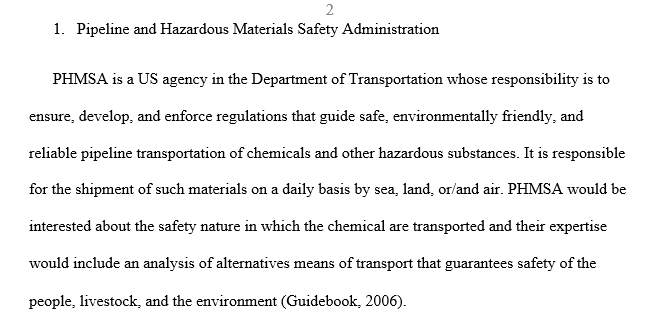Interagency Collaboration
Interagency Collaboration
Consider, hypothetically, a small community called Plainsville, Colorado, which has a critical rail line running through it. On this line, hazardous chemicals are routinely transported en route to a neighboring community (Southtown) where they are crucial for industrial use in manufacturing a certain type of nuclear defect x-ray material that is made nowhere else in the world. The rail line was first laid in the late 1800s and has been patchily maintained over its life.
Given new priorities through Department of Homeland Security (DHS) Grant Programs and state mandates, both the Plainsville community leaders and operators of the railway are concerned with increasing vulnerabilities associated with rail transport because there is evidence of structural decline due to its age and uneven maintenance. Serious damage to, or degradation of, the line in the vicinity of Plainsville might be catastrophic with worst-case consequences including: irreparable destruction of the rail; a train derailment; a chemical spill; the creation of a hazardous environment for people, livestock, and agriculture; disruption of the industrial manufacturing in Southland; and the possible economic crippling of the entire area. Any of these components alone could result in a crisis; yet a combination of these, or if combined in totality, would be a scenario considered unimaginable by Plainsville’s leadership and emergency management personnel.
By way of background, Plainsville has a “strong” mayor, meaning she is elected by the people rather than chosen by a council, etc. Based upon DHS grant dollars that have trickled down through her state and all-hazards homeland security region, Mayor Witley has determined that a commission in the form of a short-term task force should look at the vulnerabilities associated with the rail line. The commission would take the scenario outlined above, consider its many variations, study possible consequences while articulating and researching the problem(s) and receiving testimony from experts, and then make recommendations about courses of action to prevent, mitigate, or respond to any resultant crisis.
The issues at hand for the community include the integrity of the rail line, the prevention of a hazardous spill, the safety of the citizens, and the continuity of the neighboring town’s industry. (More issues may exist, but this gets you started.)
Consider and list at least 10 potential organizations that would either provide a representative to sit on the commission or that would provide information to the commission.
When listing each partner, describe his, her, or its value to the commission and what expectations the mayor (and others) might have as to the expertise, capabilities, resources, or anything else an individual or agency might contribute.
Choose the most relevant entities or individual experts you can, and think about everything from a public safety and emergency management perspective.
Your answer may require research and properly cited references in APA format.
Solution preview for the order on Interagency Collaboration
APA
932 words
